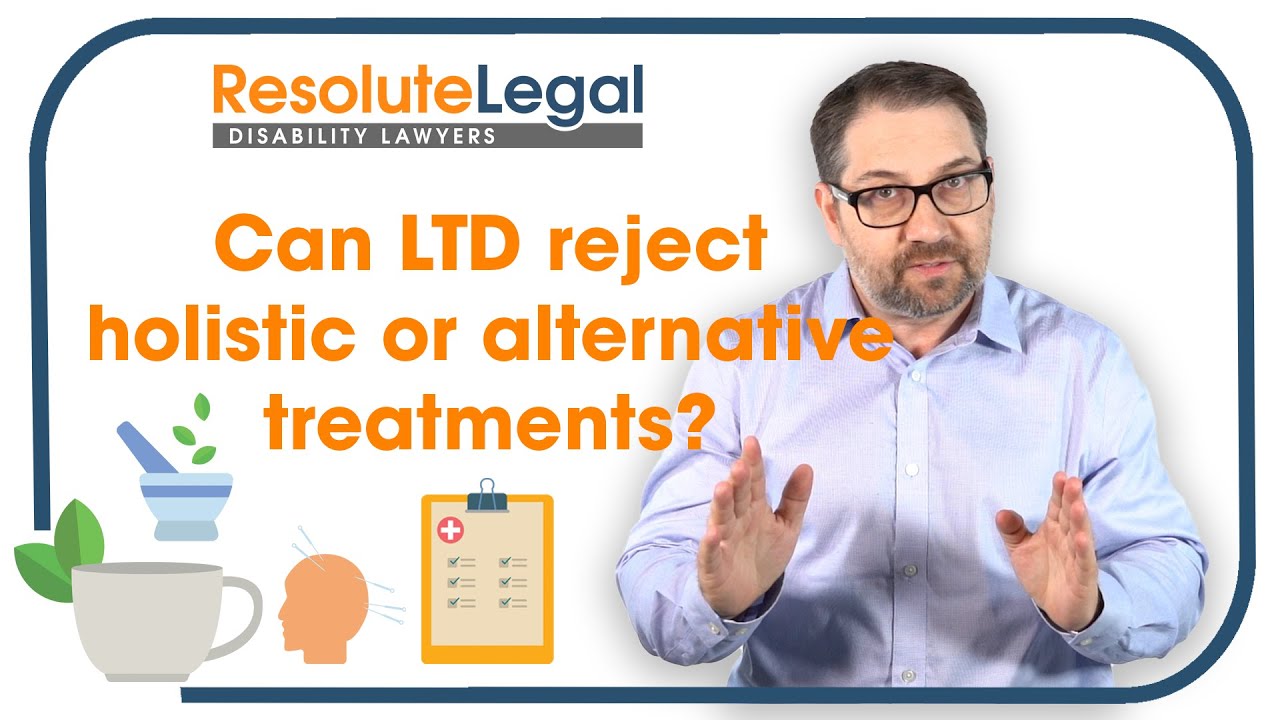It’s easy to feel defeated when traditional medicine doesn’t seem to be working. But if you want to try holistic or alternative treatments, will your long-term disability insurance company cut you off? Keep reading to find out.
It is very common for people on long-term disability to want to participate in every possible treatment to get better. And sometimes, that will lead them to try holistic or alternative treatments. However, as you’ll find out later in this article, this can cause tension with the insurance company, and participating in these treatments may even give them grounds to cut you off. So, if you want to learn more about what you can do in these situations and whether the insurance company can outright reject alternative treatments, you are in the right place.
This article is part of our Ultimate Guide to Long-Term Disability in Canada.
Will I get cut off if I participate in holistic treatments?
This is a tricky question that calls for a tricky answer. The first thing you need to know is that most insurance policies have a clause that says you have to be under the regular care of a physician. Depending on your policy, it may be worded differently, however. For instance, some will use broader language, such as you have to be under the care of a medical practitioner. So, check out your group benefits booklet to find out exactly how it is worded in yours — it’s important.
This, under the regular care of a physician clause, has been interpreted by courts to mean that a physician has to be directing your treatment. And it needs to be a reasonable treatment that other doctors could recommend.
So, when you get into things like alternative and holistic therapies, the key thing is it has to go hand-in-hand with your doctor’s treatment. Meaning it must supplement or go along with the other more traditional treatments you are doing and have medical evidence to support its value. Otherwise, you will be out of compliance with these clauses that say you have to be under the regular care of a doctor. The result? The insurance company could cut you off.
So, if you are participating in these holistic treatments against the advice of your doctor or as an alternative to the treatments your doctor recommended, then you are going to be in trouble. While your insurance company can’t explicitly prohibit you from participating in these alternative therapies, they can cut off your payments.
When, however, you are able to do these treatments as an adjunct or along with the other treatments you are doing, then you shouldn’t run into any problems.
What if I want to try holistic treatments first before starting more medically invasive treatments?
It’s common for people to want to try holistic treatments first before getting into more medically invasive treatments such as drug therapies and surgeries. Some doctors will recommend this as well. For instance, if you are struggling with chronic pain, you or your doctor may want to see if acupuncture works before starting a prescription drug therapy that may cause unpleasant side effects.
However, if you plan on doing this, you need to tread carefully. In order for an insurer to accept this alternative treatment approach, it would need to be well documented by your doctor and have a strong medical basis. Meaning your doctor would need to be able to point to literature that supports that type of approach. So, you can’t just try holistic treatments first just because you personally want to do it. The treatment also needs to be medically accepted and prescribed by your doctor.
This is important because insurance companies will hire their own doctors to investigate your treatment plan and provide opinions on whether they think it is viable. So, if you are trying an alternative therapy that other doctors don’t support, you may give the insurance company a reason to cut you off.
Final thoughts: long-term disability and alternative treatments
When it comes to alternative or holistic treatments, you need to keep three things in mind. First, your doctor needs to support the approach and document their opinion on why this treatment is the best option. Two, holistic treatments are most likely to be accepted by the insurance company when they supplement other, more medically viable treatments. Third, the holistic or alternative treatment must have a medical basis supporting its effectiveness. If you follow these three principles, you shouldn’t run into any problems with your insurance company.
If you have any questions about this article or are looking to speak to a disability lawyer about your situation, call us toll-free at.
Related reading: When Can I Refuse Medical Recommendations From My Insurance Company?
Free book offer



